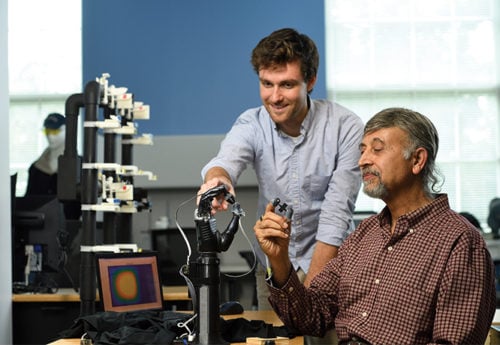Neuroengineering is an emerging and fast growing basic and translational research avenue within today’s biomedical and bioengineering fields. The main focus of neuroengineering is to use engineering tools to modulate central, peripheral and autonomic nervous system (CNS, PNS & ANS) function. It aims at developing new engineering oriented technologies within the medical field for screening, diagnosis, prognosis, rehabilitation, repair, and regeneration. Brain computer interface, deep brain stimulation, and cell replacement therapy are exemplar disciplines developed by utilizing core engineering approaches to understand pathologies and treat patients with neurological disorders.
Although neuroengineering is not a new field and has been known under different names, it has undergone a revolution in the last two decades due to rapid advancement in the fields of engineering and computer science. Neuroengineering encompasses modulation of individual neurons and their sub-cell components to regulate their networks and function in nervous tissue and the organ as whole, which eventually control the functioning of the entire human body. This allows engineers to develop means and tools to define, control, enhance, or inhibit their function selectively, precisely, and in spatial and temporal domains.
Below, you will find a suggested list of courses to help you in your course planning. Your academic interests determine the remaining courses (focus area electives). You will meet with the faculty lead of your chosen focus area to determine your course plan. The program administrator will provide additional advisement and course approval. Please note that all listed courses are suggested and may not always be offered. Course offerings are subject to change from semester-to-semester.

